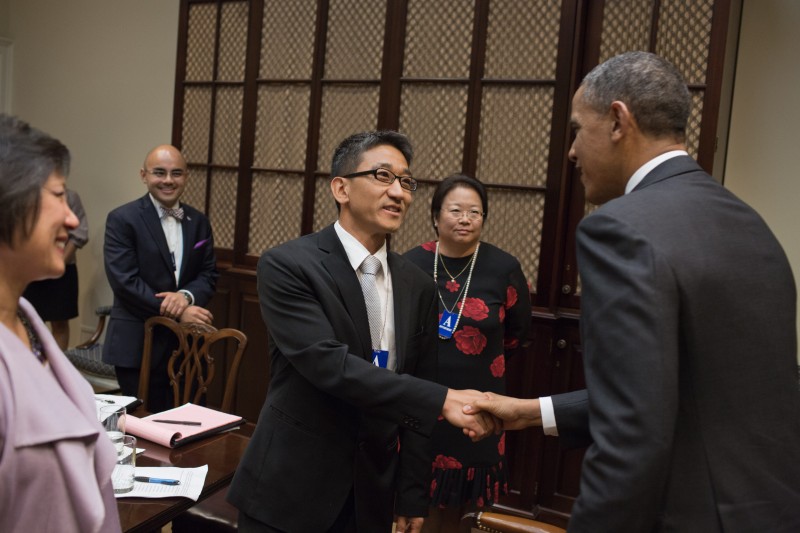by JAMES S. KIM
Above photo: President Obama meets with Dae Joong Yoon, executive director of the National Korean American Service & Education Consortium (NAKASEC) in May 2013 to discuss immigration reform.
Asian Americans have shifted most strongly toward the Democratic Party out of all racial or ethnic groups since 2000, according to a new report from Gallup released last Friday. Part of the reason may come from many Asian Americans affinity to President Obama, a fellow minority, but Gallup also attributes the shift to Asian Americans’ opposition to core tenets of the Republican Party.
The numbers from the past two presidential elections are a clear indicator of the shift. In 2008, 62 percent of Asian American voters backed Obama, and in 2012, 73 percent backed him for reelection, according to Edison Research exit poll data.
The two major issues the report identified as reasons for this political leaning: religion and immigration. A majority of Asians in the United States are non-Christian or not particularly religious, while the GOP has a core constituency of evangelical Christians.
The Republican Party’s resistance to changing immigration laws also may not sit well with the fastest growing immigrant group. Asians make up only 5 percent of the country’s population, but they recently surpassed Hispanics as the largest group of new immigrants to the U.S.
Despite the growing numbers, polls that allow for deeper analysis of Asian American views are hard to come by because of the still relatively small population and language barriers. Gallup’s report included about 4,000 Asian Americans, and it did not conduct surveys in Asian languages—a fact that the research group acknowledged as a drawback to its data. Other research centers that do conduct surveys in Asian languages, however, have produced very similar results. A 2012 Pew Research Center report, which conducted its survey in seven Asian languages, found that 50 percent of Asian Americans identified with the Democratic Party, compared with 28 percent who identified with the Republican Party.
Photo via National Korean American Service & Education Consortium (NAKASEC)









